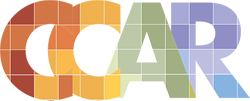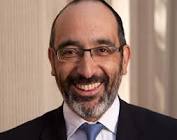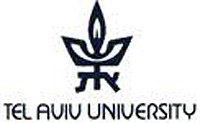Reform rabbis to gather at the U.S.-Mexico border to seek protection for refugees
 This week, Reform rabbis from across the country will lead a pilgrimage to the U.S. border with Mexico to call attention to three ongoing crises near the border: The asylum seekers languishing on the El Paso-Juarez bridge, teenagers confined to a tent city surrounded by barbed wire in Tornillo, and the humanitarian crisis in El Paso, Texas, where immigrants and refugees are being released randomly with no access to support or resources. The Let Our Families Go pilgrimage represents a bold new effort to mobilize faith communities (particularly Jewish faith communities) around the issues of immigrant justice and human rights.
This week, Reform rabbis from across the country will lead a pilgrimage to the U.S. border with Mexico to call attention to three ongoing crises near the border: The asylum seekers languishing on the El Paso-Juarez bridge, teenagers confined to a tent city surrounded by barbed wire in Tornillo, and the humanitarian crisis in El Paso, Texas, where immigrants and refugees are being released randomly with no access to support or resources. The Let Our Families Go pilgrimage represents a bold new effort to mobilize faith communities (particularly Jewish faith communities) around the issues of immigrant justice and human rights.
“The increased militarization of our borders and zero-tolerance policies have created the conditions for this humanitarian disaster affecting immigrants and asylum seekers,” said Rabbi Miriam Terlinchamp, rabbi at Temple Sholom in Cincinnati, Ohio. “These policies violate every principle of decency, justice and compassion that we hold as Jews. We are making this sacred journey to call on our government to stop the unacceptable practice of imprisoning immigrant minors and ensure protection for those seeking refuge within our borders.”
The rabbis will travel in three groups, departing from Ann Arbor, Michigan; Cleveland, Ohio; and Sacramento, California on November 12, with stops in Indianapolis and St. Louis for rallies and meetings, and finally converging in El Paso on November 15. Upon arriving in El Paso, the group will participate in an action of prophetic witness that will call attention to the injustices taking place on the border and travel to Tornillo, Texas, demonstrating solidarity between the Jewish community and the immigrants suffering these outrages.
“Every day, we see in our community the painful suffering of immigrant families and asylum seekers, who want nothing more than the chance for a safe and dignified future,” said Rabbi Ben Zeidman, rabbi at Temple Mount Sinai in El Paso.
“We, as people of faith, stand for the reunification of children with parents or guardians regardless of immigration status,” said Rabbi Josh Whinston, rabbi at Temple Beth Emeth in Ann Arbor, Michigan and co-chair of Let Our Families Go. “The time has to bring an end to the outrageous practices that keep asylum seekers and immigrant teens mired in desperate poverty or locked in prison camps. This pilgrimage is a fulfillment of our obligation as religious leaders to support the most vulnerable among us, and an acknowledgement of the immigrant identity embedded in our own Jewish heritage.”
The Central Conference of American Rabbis (CCAR) will be represented in El Paso by its Board member, Rabbi Barry Block of Congregation B’nai Israel in Little Rock, Arkansas. — From Central Conference of American Rabbis.
*
South Africa’s Chief Rabbi to visit San Diego to promote Sinai50 project

Chief Rabbi Dr Warren Goldstein of South Africa will be visiting Southern California on December 2-5, 2018 to discuss the launch of his global Jewish education initiative, Sinai50. Rabbi Goldstein is best known for founding and building The Shabbat Project, a global grassroots movement, which last year involved more than one million Jews in 1,416 cities and 97 countries around the world. He also established the Sinai Indaba which brings together an array of the foremost international Jewish thinkers and speakers and thousands of Jews of all persuasions, in what is arguably the largest annual Torah convention in the world. These and other initiatives of the Rabbi are changing the face of world Jewry.
Sinai50 is a project to create a master curriculum for the Jewish world, exploring the foundations of Jewish faith, Jewish belief and Jewish identity, which is accessible and compelling to Jews of all backgrounds and persuasions. The dual vision of the project, which highlights the 50 lessons that every Jew should know and understand, is to implement a campaign to get as many people as possible learning Torah and becoming literate Jews; and to create a master curriculum that forms the basis of what many existing organizations use in reaching out to their own networks. The program has two main focuses: Connecting parents and their children through joint study; and improving Jewish literacy among adults. Sinai50 will cover key texts, themes and episodes from Jewish texts creating a clear, inspiring and innovative journey through Jewish thought and values and what it means to be a Jew in today’s world.
The State of Israel regards this program as so important to the continuity of Jews in the diaspora and ultimately world Jewry support for Israel that the Ministry of the Diaspora has committed $3.5 million in matching funds for its development and worldwide distribution. — From Shabbat San Diego
*
Tel Aviv University finds way to use body’s own cells to regenerate organs
 In a new study, Tel Aviv University researchers reveal how they invented the first fully personalized tissue implant, engineered from a patient’s own materials and cells. The new technology makes it possible to engineer any kind of tissue implant from one small fatty tissue biopsy.
In a new study, Tel Aviv University researchers reveal how they invented the first fully personalized tissue implant, engineered from a patient’s own materials and cells. The new technology makes it possible to engineer any kind of tissue implant from one small fatty tissue biopsy.
“We were able to create a personalized hydrogel from the materials of the biopsy, to differentiate fatty tissue cells into different cell types and to engineer cardiac, spinal cord, cortical and other tissue implants to treat different diseases,” says Prof. Tal Dvir of TAU’s Department of Biotechnology, Department of Materials Science and Engineering, Center for Nanoscience and Nanotechnology and the Sagol Center for Regenerative Biotechnology, who led the research for the study.
“Since both the cells and the material used derive from the patient, the implant does not provoke an immune response, ensuring proper regeneration of the defected organ,” Prof. Dvir says.
The research was conducted by Prof. Dvir’s postdoctoral researcher Reuven Edri and doctoral students Nadav Noor and Idan Gal, in collaboration with Prof. Dan Peer and Prof. Irit Gat Viks of TAU’s Department of Cell Research and Immunology and Prof. Lior Heller of Assaf HaRofeh Medical Center in Israel. It was recently published in Advanced Materials.
Currently, in tissue engineering for regenerative medicine, cells are isolated from the patient and cultured in biomaterials to assemble into a functional tissue. These biomaterials are always either synthetic or natural, derived from plants or animals. After transplantation, they may induce an immune response that leads to rejection of the implanted tissue. Patients receiving engineered tissues or any other implants are treated with immuno-suppressors, which themselves endanger the health of the patient.
“With our technology, we can engineer any tissue type, and after transplantation we can efficiently regenerate any diseased or injured organ — a heart after a heart attack, a brain after trauma or with Parkinson’s disease, a spinal cord after injury,” says Prof. Dvir. “In addition, we can engineer adipogenic (fatty tissue) implants for reconstructive surgeries or cosmetics. These implants will not be rejected by the body.”
The researchers extracted a small biopsy of fatty tissue from patients, then separated its cellular and a-cellular materials. While the cells were reprogrammed to become induced pluripotent stem cells — able to make cells from all three basic body layers, so they can potentially produce any cell or tissue the body needs to repair itself — the extracellular material was processed to become a personalized hydrogel. After combining the resulting stem cells and the hydrogel, the scientists successfully engineered the personalized tissue samples and tested the patients’ immune responses to them.
The researchers are currently engaged in regenerating an injured spinal cord and an infarcted heart with spinal cord and cardiac implants. They have also begun to investigate the potential of human dopaminergic implants to treat Parkinson’s disease in animal models.
The researchers plan to regenerate other organs, including intestines and eyes, using the patients’ own materials and cells. “We believe that the technology of engineering fully personalized tissue implants of any type will allow us to regenerate any organ with a minimal risk of immune response,” Prof. Dvir concludes.– From Tel Aviv University
*
Preceding items culled from news releases. Please send yours to editor@sdjewishworld.com